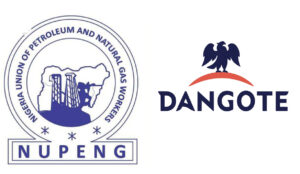Nigeria, OPEC Seek Measures to Halt Oil Price Slump

Samuel Mobolaji
Nigeria is collaborating with fellow OPEC members and other oil-producing nations to explore measures aimed at reversing the sharp decline in global oil prices, which is threatening the fiscal stability of petroleum-reliant economies.
The persistent slump, which dragged Brent crude to as low as $63 per barrel in April, has compounded the financial strain on oil-dependent nations, including Nigeria, Saudi Arabia, Brazil and Russia — all of which rely heavily on crude exports to fund their national budgets.
For Nigeria, the situation raises fresh concerns over the feasibility of its N54.35 trillion 2025 budget, which is based on an oil price benchmark of $75 per barrel and a daily production target of 2.06 million barrels, including condensates. Industry analysts have warned that ongoing issues such as pipeline vandalism, oil theft and weak investment could undermine both production and revenue targets.
Read Also: NLNG to Broaden Local Insurance Coverage of Key Assets
The drop in global oil prices also exposes the fragile economic assumptions of other major producers. Saudi Arabia, for instance, requires oil to sell at $91 per barrel to balance its budget, according to the International Monetary Fund (IMF).
The kingdom may be forced to increase borrowing or delay spending on its ambitious development projects if prices fail to rebound.
Similarly, Kuwait has approved a new financing law to return to the debt market for the first time in eight years, as its economy struggles under the combined weight of OPEC+ production cuts and low oil prices.
The IMF had previously warned that Kuwait’s economy remains highly vulnerable to commodity price swings and slowing global growth.
Russia has also flagged concerns, with Central Bank Governor Elvira Nabiullina warning that continued price declines, combined with rising trade tensions, could shrink global energy demand and expose the country to fresh economic risks.
As the pressure mounts, producers are intensifying discussions on possible coordinated actions to stabilise the market and avert further financial disruption across oil-dependent economies.









